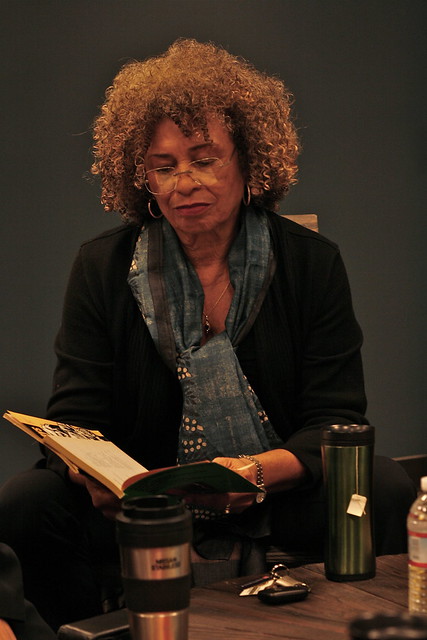
This year’s fourth annual “Palestine and the Indivisibility of Justice” panel hosted a series of notable speakers such as activist, author and scholar, Angela Davis.
The celebration of the Palestinian cultural mural situated in Jack Adams Hall took place in honor of Dr. Edward Said and featured a panel of speakers addressing Palestine.
Speakers discussed the Israeli occupation of Palestine and the violence and opression that has since ensued.
Other speakers included Waziyatawin, Gerald Lenoir, Melissa Garcia, Gina Dent, and Rabab Abdulhadi.
SF State senior Lana Abu-Arafeh, long-time member of the General Union of Palestine Students at SF State, felt that mainstream media isn’t doing justice in covering the ever-going conflict between the two groups, and hopes the event can bring more attention to the unjust situation.
“I feel like what they (the students) see in the media, is what they usually understand,” Abu-Arafeh said. “So we’re here to tell them what is really happening.”
The speakers touched on topics such as the abstraction and experiences of indigenous people and the possibility of what a free Palestine from Israeli occupation might look like, according to keynote speakers Waziyarawin and Gina Dent, who spoke on these topics.
The event not only touched on a variety of issues, but challenged students to include the liberation of Palestine in any other forward-thinking activist agendas they may have.
“Where I stand, the most important message would be the importance of incorporating solidarity with the Palestinian people and the struggle for a free Palestine into all progressive agendas,” Davis said. “Which of course, could be at the same time the theme of the indivisibility of justice.”
The event also attempted to allow students to understand how connected a student’s personal struggles, such as budget cuts and U.S. economic crisis, is tied together with the entire world as a whole.
“Students need to begin critically thinking, and not taking everything they see as de facto… They need to understand that there is a linkage between what is happening in their lives and what is happening elsewhere in the world…,” Abdulhadi said. “To really becoming more responsible in the collective community for justice.”
Some students in attendance already are on the same path of thinking as Abdulhadi and share similar sentiments.
“I’m looking forward to this because more than anything we need to commemorate the struggles that happened here,” SF State senior Chino Martinez said. “It’s really basic for us to understand that the U.S. relationship with Palestine is deeply affecting the way that our education is being run here, and in the way things are taught to us, and also in the way things are funded.”




